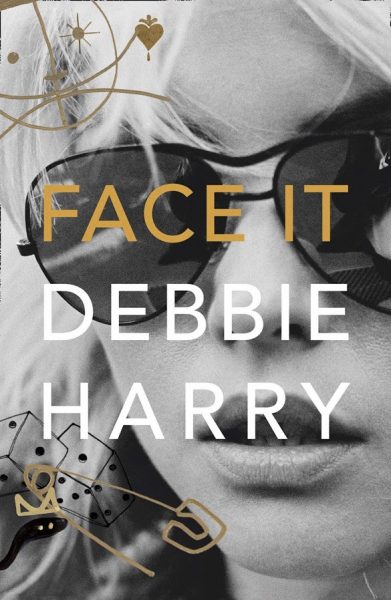
Of all the performers influenced by Marilyn’s style, few have paid homage with as much panache as Blondie singer Debbie Harry – albeit with a punk rock edge all her own. In the first of two extracts from her new memoir, Face It, Debbie looks back to her childhood days with her adoptive New Jersey family, when Marilyn was her idol. (UPDATE: you can read my second post here.)
“By the time I was fourteen, I was dyeing my hair. I wanted to be platinum blond. On our old black-and-white television and at the theater where they screened Technicolor movies, there was something about platinum hair that was so luminescent and exciting. In my time, Marilyn Monroe was the biggest platinum blonde on the silver screen. She was so charismatic and the aura she cast was enormous. I identified with her strongly in ways I couldn’t articulate. As I grew up, the more I stood out physically in my family, the more people that I felt I related to in some physical way. With Marilyn, I sensed a vulnerability and a particular kind of femaleness that I felt we shared. Marilyn struck me as someone who needed so much love. That was long before I discovered that Marilyn had been a foster child.”
Later on, Debbie describes how she incorporated her fascination with Marilyn’s image into her own stage performances with Blondie.
“Iggy Pop apparently described me once as ‘Barbarella on speed’ … Our band shared its name with a cartoon character, after all. And I was playing at being a cartoon fantasy onstage. But the mother of that character was really Marilyn Monroe. From the first time I set eyes on Marilyn, I thought she was just wonderful. On the silver screen, her lovely skin and platinum hair were luminescent and fantastic. I loved the fantasy of it. In the fifties, when I grew up, Marilyn was an enormous star, but there was such a double standard. The fact that she was such a hot number meant that many middle-class women looked down on her as a slut. And since the publicity machine behind her sold her as a sex idol, she wasn’t valued as a comedic actor or given credit for her talent. I never felt that way about her, obviously. I felt that Marilyn was also playing a character, the proverbial dumb blonde with the little-girl voice and the big-girl body, and that there was a lot of smarts behind that act. My character in Blondie was partly a visual homage to Marilyn, and partly a statement about the good old double standard.
The ‘Blondie’ character I created was sort of androgynous. More and more lately, I’ve been thinking that I was probably portraying some sort of transsexual creature … A lot of my drag queen friends have said to me, ‘Oh, you were definitely a drag queen.’ They didn’t have problems seeing it. It was the same thing with Marilyn really. She was a woman playing a man’s idea of a woman … My Blondie character was an inflatable doll but with a dark, provocative, aggressive side. I was playing it up but I was very serious.”